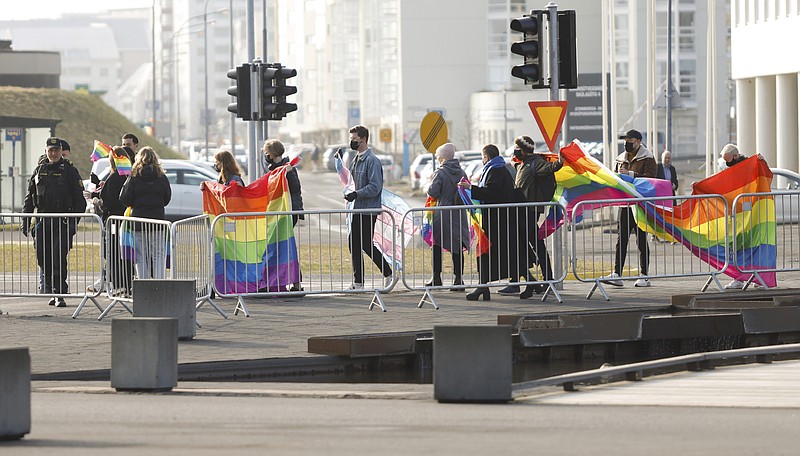REYKJAVIK, Iceland -- The Biden administration is leading a campaign against Russian attempts to assert authority over Arctic shipping and reintroduce a military dimension to discussions over international activity in the area.
As Russia assumed the rotating chairmanship of the Arctic Council on Thursday, the U.S. rallied other members to oppose Moscow's plans to set maritime rules in the Northern Sea Route, which runs from Norway to Alaska, and its desire to resume high-level military talks within the eight-nation bloc. Those talks were suspended in 2014 over Russia's actions in Ukraine.
The effort reflects growing concerns in Washington and among some NATO allies about a surge in Russian military and commercial activity in the region that is rapidly opening up because of the effects of climate change. Russia has expressed similar suspicion about NATO's motives.
At a meeting of Arctic Council foreign ministers in Reykjavik, the capital of Iceland, U.S. Secretary of State Antony Blinken said the group should maintain its focus on peaceful cooperation on environmental issues, maritime safety and the well-being of indigenous people in the region.
[Video not showing up above? Click here to watch » https://www.youtube.com/watch?v=9Bo6O3Usrtw]
"The Arctic is a region for strategic competition that has seized the world's attention," Blinken said. "But the Arctic is more than a strategically or economically significant region. It's home to our people; its hallmark has been and must remain peaceful cooperation. It's our responsibility to protect that peaceful cooperation and to build on it."
Blinken stressed the importance of upholding "effective governance and the rule of law" to ensure that the "Arctic remains a region free of conflict where countries act responsibly." He had previously questioned the legality of the proposed Russian maritime rules and expressed deep reservations about Russia's military activity in the far north.
Several other foreign ministers, including those from Canada, Iceland, Finland, Norway and Sweden, echoed Blinken's call to keep the Arctic peaceful and free of conflict under international authority. Representatives of indigenous Arctic populations urged that their voices be heard.
"We are concerned over the level of recent angry and provocative rhetoric," said James Stotts of the Inuit Circumpolar Council. "We do not want to see our homeland turned into a region of competition and conflict."
Russian Foreign Minister Sergey Lavrov, who earlier this week dismissed the U.S. criticism because the Arctic "is our territory, our land," questioned NATO's motives in the area. On Thursday, he said resumption of an Arctic Council military dialogue would contribute to stability.
"It is therefore important to extend the positive relations we have within the Arctic Council to encompass the military sphere as well, first of all by revitalizing multilateral dialogue on military issues between the general staffs of the Arctic states," Lavrov said.
He said later that resuming that dialogue would be a priority for Russia while it heads the council.
"We have not received any 'no's' so far, but we have not received any positive reaction either," Lavrov said. "So we have decided that within the next three years we will create the proper conditions so that this particular aspect of common security will once again be part of the work of the Arctic Council."
The outgoing council chair, Foreign Minister Gudlaugur Thor Thordarson of Iceland, did not appear enthusiastic. "Everything that we can do as nations to lower tension and see stability is something that, of course, should be looked into very positively, but I think it's important to keep the council as it is," he said.




